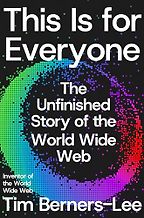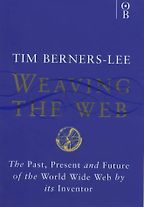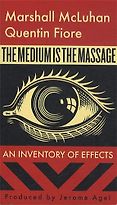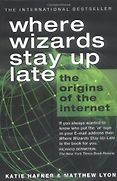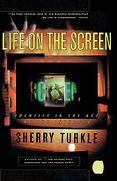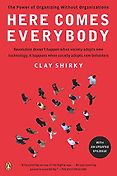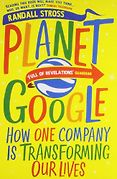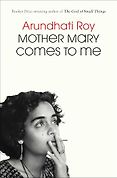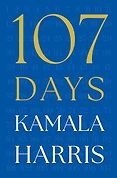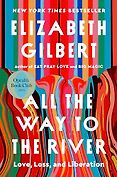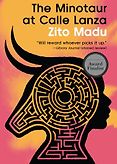Books by Tim Berners-Lee
This is for Everyone: The Unfinished Story of the World Wide Web
by Tim Berners-Lee
Tim Berners-Lee tells the story of his life and how the World Wide Web came to be. It's more detailed than his previous account, Weaving the Web, published in 1999, but continues the theme that only by understanding where the internet came from can we really understand how to save it from itself, an objective that has become all the more urgent in 2025. The Financial Times called it a chirpy book, "part memoir, part manifesto."
“Tim Berners-Lee is the guy who designed and named the World Wide Web. He was a physicist, he was working in CERN, and this book is extremely engaging and readable. It’s very similar in some ways to Francis Crick’s The Double Helix, and he really just talks about where his invention came from, how it happened, and what everything you read about the history of the Internet tells you that a lot of it happened by accident.” Read more...
Lev Grossman recommends the best books on the World Wide Web
Lev Grossman, Novelist
Interviews where books by Tim Berners-Lee were recommended
Lev Grossman recommends the best books on the World Wide Web
The book critic and technology columnist for Time magazine says there’s a level on which the Internet is a mass tool for pacification. It allows people to play out their lives in a fantasy context, which is very politically unthreatening. He picks the best books on the World Wide Web.
-

1
Mother Mary Comes to Me
by Arundhati Roy -

2
107 Days
by Kamala Harris -

3
All the Way to the River: Love, Loss, and Liberation
by Elizabeth Gilbert -

4
This is for Everyone: The Unfinished Story of the World Wide Web
by Tim Berners-Lee -

5
Raising Hare
by Chloe Dalton -

6
The Minotaur at Calle Lanza
by Zito Madu
New Memoirs
New Memoirs
New memoirs continue to come out hard and fast, testimony to our enduring interest in hearing people tell the stories of their own lives. So far in 2025, these have included candid tales told in painful detail by talented writers, as well as books that combine personal history with other objectives—such as, for example, saving the internet.
